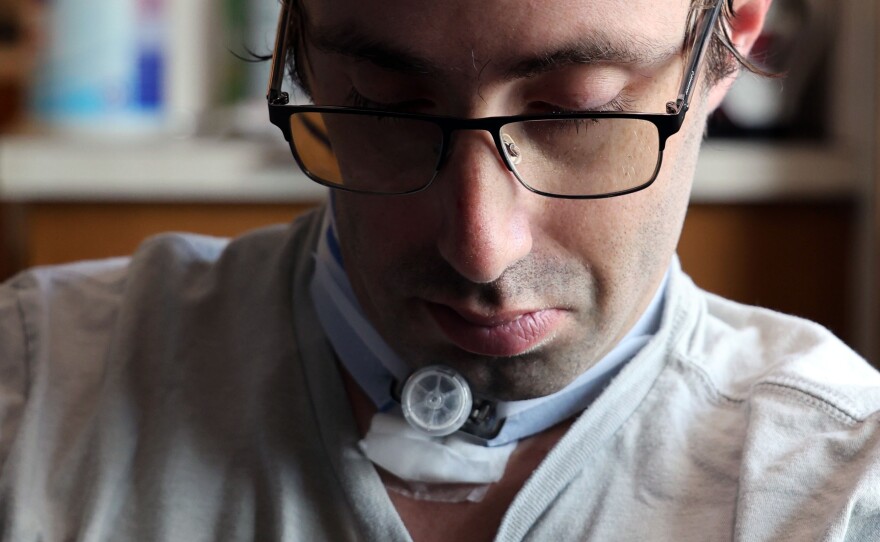Sarah Herkamp, 47, felt relief when she finally received a diagnosis.
Her whole life, she said, she always felt like something was off.
“Before that I had just thought that everybody else is better at hiding how exhausted they are after being in social situations with lots and lots of people,” Herkamp said.
At 32-years-old, she was diagnosed with Asperger’s syndrome — what some refer to as “high-functioning autism.” Things have always been a little harder, she said, but that doesn’t mean she’s incompetent.
According to UCLA Health, more than 80 percent of women with autism are undiagnosed until adulthood, which can cause a lot of challenges to fly under the radar — like finding employment.
Herkamp said she struggled her whole life with finding a stable job. After getting diagnosed with Asperger’s, her disability made holding a steady job and making a livable wage difficult.

“People have disabilities, but that doesn’t mean they’re unemployable,” she said.
She bounced around Cincinnati, Ohio, working various jobs — such as a paralegal and an office temp. She said she never fit into the box she was expected to because her brain functioned a little differently.
With more than four years of higher education, including a law degree, she said she felt like she was wasting her potential while simultaneously losing jobs left and right.
When she stumbled upon Grow Hub, she said it was like a match made in heaven.
Grow Hub, a non-profit plant nursery in Gainesville, Florida, is working to break barriers by providing equal employment opportunities to people with disabilities.
“It seemed too good to be true,” she said.
Alexa Heilman, the nursery supervisor and horticultural therapist at Grow Hub, said they serve as the example. There are a lot of resources for people with disabilities under 18, but as soon as they age out of the system, she said, they struggle with finding meaningful employment.
“We really want to work on here is just normalizing, like, yeah, people with disabilities can do most of the things that you or I can do,” Heilman said.
It’s more than just finding a job, Kyle Smith, the sales manager at Grow Hub said. People with disabilities have to afford to live, too.
“I need to eat just like you do,” he said. “Breathe, just like you do.”
Smith was born with Spina Bifida, so the nerves in his back were basically nonexistent. In 2015, he underwent three brain surgeries, which led to his dependence on a wheelchair for getting around and a trach tube for breathing.
“I had to relearn how to do everything again,” he said. “Eating, talking, walking.”
But that doesn’t stop him from working, driving and living his life like anybody else. People have these preconceived notions of what it means to be disabled, he said, and Grow Hub helps reform those assumptions.
“This place means everything to me,” Herkamp said. “I want more people to come here and find out what it’s like.”
Herkamp said she hopes more employers can see what’s possible when inclusion is the norm — not the exception.










